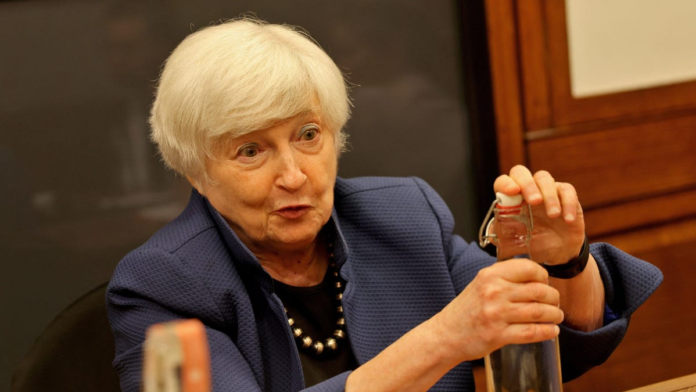India’s deepening trade ties with Russia have sparked global criticism this year. The US, however, seems to have c ome to accept this evolving trade pattern.
US Treasury secretary Janet Yellen has said that her country was happy for India to continue its purchases of Russian oil as much as it wants, even above the price cap set by G7 nations.
Advertisement
In doing so, however, India must not violate Western insurance, finance, and maritime services that are subject to the G7 price cap mechanism, Yellen said in an interview with Reuters last week.
“India can also purchase oil at any price they want as long as they don’t use these Western services and they find other services. And either way is fine,” Yellen told Reuters on Nov. 11. She was speaking on the sidelines of the India-US Economic Financial Partnership meeting in New Delhi.
India is now among the largest buyers of Russian oil. Russia’s share in India’s overall oil imports now stands at 12%, up from a minuscule 2% at the beginning of this year.
Advertisement
How will the G7 price cap mechanism affect India?
In May, the US proposed a price cap on Russian crude oil, which would lift sanctions for countries that agree to buy the commodity below a set price. Industry experts expect the Russian Urals crude prices to average around $60 a barrel under the price cap.
While the final details of the mechanism will be finalized only by Dec. 5, global oil refiners are already recalibrating their resources to ensure its resilience.
The idea is to block Russia’s oil revenues that go into funding its war against Ukraine.
The West would also deny insurance, maritime services, and finance for tanker cargoes priced above the set limit. Around 95% of the global oil tanker fleet is estimated to be covered by shipping insurers based in G7 countries.
Advertisement
Given the shortage in non-western shipping insurance and services, the move is expected to lower Russia’s crude oil sales. Yellen said this would also give major oil buyers like India and China much leverage to bargain.
The emergence of non-western shipping services
Russia has, till now, not signalled any intent to sell its crude oil under the price cap. This means it is looking to develop alternative supply chains.
The country does not have enough ships to transport its oil amid the price cap—it is expected to fall short by around 110 tankers, according to S&P Global.
In such a scenario, Moscow could turn to shipping companies in India, China, and the Arabian Gulf. In October, Russian oil major Rosneft expanded its tanker chartering business to ease shipments for its buyers.
Advertisement
“Whatever tactics are used, the accumulation of a fleet will take some time. In the meantime, Russian production may be reduced and limited by the available shipping capacity, which will likely lead to a period of volatility on the oil market,” Sergey Vakulenko, an independent energy analyst, told S&P Global in October.



